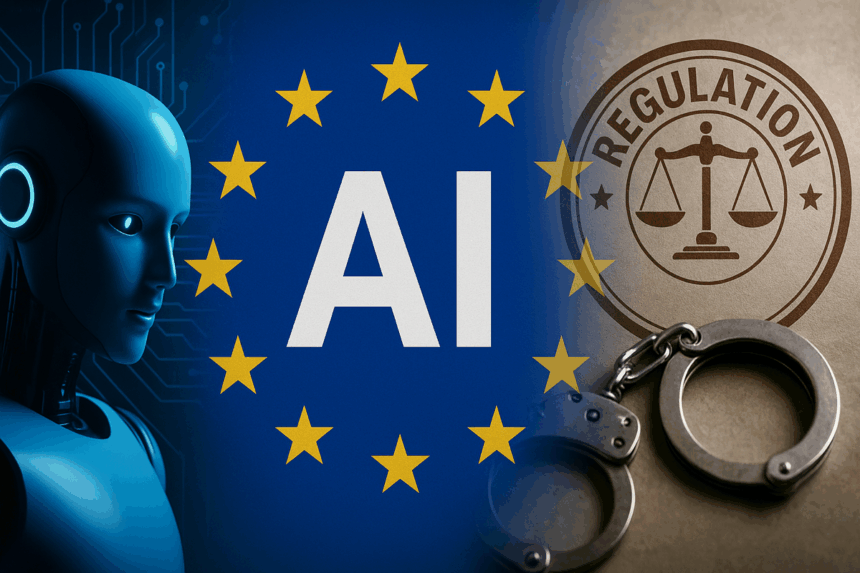As technological advancements outpace oversight, Europe is taking significant steps to ensure digital platforms operate safely and ethically. With Germany playing a central role in pushing for stronger AI safety measures and the European Commission enforcing compliance with its Digital Services Act (DSA), the continent is actively shaping the future of AI regulation. However, not all countries have fully implemented these crucial laws, prompting legal actions from the European Commission to ensure that member states uphold their responsibilities. The global AI safety discussion continues amid these regulatory efforts, with major companies like Google and Meta advocating for ethical AI practices. As these developments unfold, it’s clear that the path forward will require a delicate balance between innovation and public safety.
What’s Happening & Why This Matters
In the European Union, tech regulation, AI safety, and user protection are becoming increasingly vital. The Digital Services Act (DSA), designed to safeguard digital users, is at the forefront of this initiative, pushing for stronger oversight on digital platforms. However, countries like Czechia, Poland, Cyprus, Spain, and Portugal have struggled to implement the necessary measures, failing to appoint regulators or provide sufficient authority to monitor large platforms. This has led the European Commission to take legal action, filing lawsuits against these countries to ensure full compliance.
Meanwhile, the global AI community has seen rising efforts to regulate AI systems. Following a Paris Summit where geopolitical tensions created setbacks in AI regulation discussions, a new consensus on AI safety has emerged. At the Singapore AI Summit, industry leaders, including Google DeepMind, Meta, and OpenAI, highlighted the growing urgency of developing ethical AI frameworks. The Singapore Consensus, aimed at addressing AI safety risks, has set clear goals for research and testing, offering a comprehensive approach to developing trustworthy AI systems.

Amid these discussions, Germany stands out as a leader in AI safety initiatives. The country has been proactive in advocating for policies that ensure AI safety while striving for a balance between innovation and security. Germany’s leadership role in shaping AI legislation is complemented by its commitment to enforcing rules to ensure digital safety across the continent. With AI technology rapidly advancing, Europe’s push for strong regulatory frameworks is essential to ensuring public safety and minimizing risks.
This ongoing battle over AI regulation, digital platform accountability, and user safety plays out against the backdrop of significant international pressure. The stakes are high, from Germany’s role in AI safety leadership to the European Commission’s legal action against member states. These efforts aim to protect citizens from potentially harmful technologies while promoting responsible innovation. However, the complexities of global AI regulation and enforcement show that much more work must be done.
Key Players and Projected Impact
The European Commission’s pursuit of legal action against countries failing to apply the Digital Services Act is more than just about enforcing laws. It reflects Europe’s desire to ensure safe online environments by holding digital platforms accountable for their content and services. These regulations aim to tackle everything from harmful content to disinformation and fraud.

Germany’s role in regulating AI is another significant piece of this puzzle. As AI technology becomes more advanced, Germany has pushed for frameworks that ensure safety and ethical guidelines are embedded into the design of these technologies. The country has advocated creating an AI regulatory framework that reflects public concerns while fostering innovation. As the AI safety debate gains momentum globally, Germany’s proactive stance could influence other nations and serve as a model for future regulation.
The Paris AI Summit provided a platform for key industry players, including Google, Meta, and Anthropic, to gather and discuss the global consensus on AI safety. Despite some nations’ reluctance to sign a joint declaration, the Singapore Consensus marks a turning point in AI governance. With OpenAI, Meta, and other major players on board, the push for ethical AI development continues to build momentum, which could lead to further legislation and international agreements aimed at ensuring AI safety.
TF Summary: What’s Next
Germany’s efforts to lead in AI regulation and the European Commission’s ongoing legal actions against member states demonstrate the EU’s commitment to a safer digital space. As AI regulation and digital platform safety continue to evolve, we can expect further developments in both policy and industry practices. With discussions continuing globally on balancing innovation with safety, Germany’s role and the actions taken by the European Commission could shape the future of AI regulation across Europe and beyond.
As AI systems integrate deeper into our daily lives, regulations and safety measures must keep pace. Collaboration between international organizations, industry leaders, and governments is essential to ensuring that AI safety is a top priority while fostering responsible technological development.
— Text-to-Speech (TTS) provided by gspeech.


